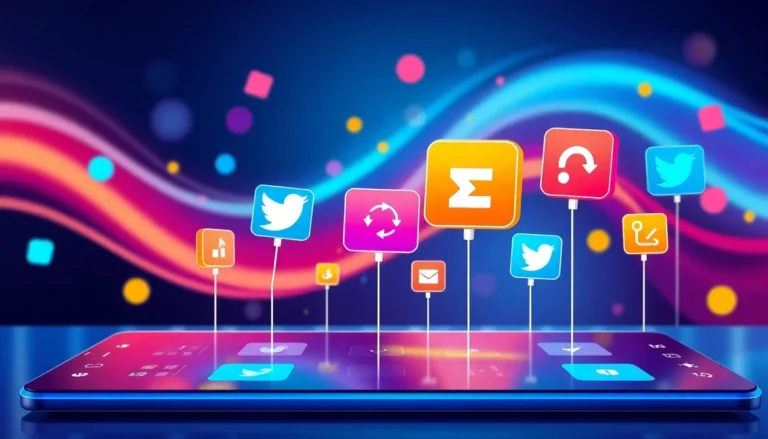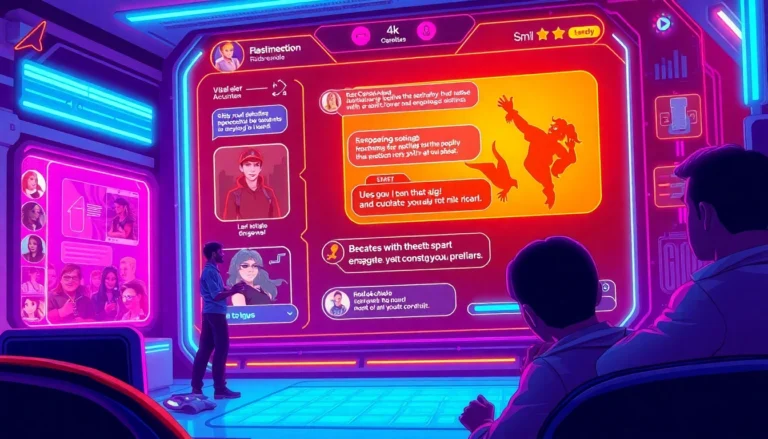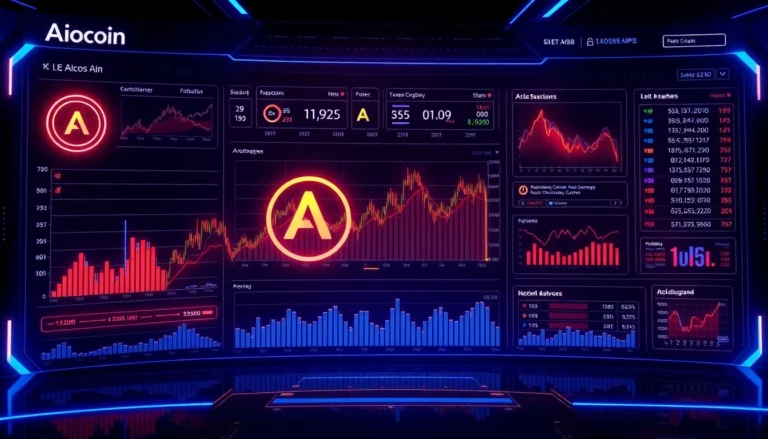What is Technology?
Defining Technology in Today’s Context
Technology is a multifaceted concept that permeates every aspect of modern life. At its core, technology refers to the science of the application of knowledge to practical purposes. In various contexts, it embodies tools, systems, and methods devised to solve problems or enhance human capabilities. From ancient innovations like the wheel to contemporary advancements such as artificial intelligence, technology continues to evolve, shaping our daily experiences and the landscape of society at large.
Types of Technology: An Overview
Technology can be categorized in various ways, but a common differentiation includes:
- Information Technology (IT): Encompassing computer systems, networks, and software used to store, retrieve, and transmit information.
- Biotechnology: The use of biological systems or organisms in the development of products, including pharmaceuticals and agricultural enhancements.
- Transportation Technology: Innovations that facilitate the movement of people and goods, from vehicles to logistics management systems.
- Energy Technology: Techniques and devices for producing and using energy, focusing on sustainability and efficiency.
- Communication Technology: Tools and systems that enable the exchange of information, including telephony, broadcasting, and the internet.
Each of these categories reflects not only the diversity within technology but also its deep interconnection with different industries and daily life.
The Importance of Technology in Daily Life
Technology has become indispensable in daily life, enhancing efficiency, connectivity, and convenience. It has transformed how we communicate, shop, learn, and manage our health. For instance:
- Communication: Technologies like smartphones and social media have made instantaneous communication across the globe possible.
- Education: E-learning platforms and online resources have democratized access to information and learning opportunities.
- Healthcare: Digital health technologies facilitate better patient care through telemedicine, electronic health records, and wearable health monitors.
- Entertainment: Streaming services have redefined media consumption, allowing users to access vast libraries on-demand.
In essence, technology not only enhances quality of life but also drives socio-economic growth, innovation, and collaboration.
The Evolution of Technology
A Historical Perspective on Technological Advances
The history of technology is a rich tapestry that chronicles humanity’s journey from primitive tools to sophisticated digital systems. Key phases include:
- Prehistoric Technology: The early use of stone tools laid the groundwork for civilization.
- The Agricultural Revolution: The domestication of plants and animals marked a significant turning point, enabling settled societies.
- The Industrial Revolution: From the late 18th century onward, mechanization transformed industries and urban life.
- The Digital Revolution: The late 20th century saw the rise of computers and the internet, reshaping communications and information access.
Each phase not only introduced new capabilities but also fundamentally altered economic structures and social interactions.
Key Milestones in Technology Development
Understanding the pivotal milestones enhances our appreciation of technological advancements:
- The Wheel (circa 3500 BC): A foundational innovation that revolutionized transport and industry.
- The Printing Press (1440): Enabled the mass production of written materials, vastly improving literacy and learning.
- The Steam Engine (1712): Catalyzed the Industrial Revolution, changing manufacturing and transport forever.
- The Internet (1960s): Reshaped communication, commerce, and access to information worldwide.
- Smartphones (2000s): Merged computing power with mobile communication, creating a personal communication hub.
The Role of Technology in Shaping Society
Technology’s influence on society is profound and multifaceted. It has:
- Transformed the workplace, enabling remote work and fostering new business models.
- Facilitated global connectivity, allowing cultures to interact and share ideas more freely.
- Changed public health landscapes through technological interventions in disease prevention and management.
- Prompted social change, empowering movements through digital platforms and social media.
Ultimately, as technology continues to advance, its societal impacts will likely become even more pronounced.
Applications of Technology
Technology in Business: Transforming Operations
Businesses leverage technology to improve efficiency, enhance customer experience, and drive innovation. Key applications include:
- Automation: Robots and software automate repetitive tasks, reducing costs and improving accuracy.
- Data Analytics: Tools that analyze consumer data help businesses make informed decisions.
- Cloud Computing: Enables businesses to scale operations flexibly while reducing infrastructure costs.
- E-commerce: Online platforms broaden market reach, allowing for global sales.
These applications not only streamline business processes but also foster competitive advantages.
Impact of Technology on Healthcare
Technology has profoundly impacted healthcare, enhancing patient outcomes and operational efficiencies. Key areas where technology is making a significant difference include:
- Telemedicine: Allows patients to consult healthcare providers remotely, increasing access to care.
- Wearable Devices: Tracks health metrics such as heart rate and activity levels, empowering self-management of health.
- Electronic Health Records (EHRs): Streamlines patient information management, leading to improved care coordination.
- Artificial Intelligence (AI): Facilitates diagnosis and treatment personalization through predictive analytics.
As technology continues to evolve, so too does the potential to enhance healthcare delivery across the globe.
Technology in Education: A New Learning Era
The educational landscape has transformed dramatically through technology, creating new modes of learning. Major advancements include:
- Online Learning Platforms: Provides learners with access to courses and resources from anywhere.
- Interactive Learning Tools: Promotes engagement through gamification and multimedia resources.
- Learning Management Systems (LMS): Enables educators to track student progress and customize learning experiences.
- Virtual and Augmented Reality: Immersive technology enhances experiential learning opportunities.
This technological shift has democratized education, making it more accessible and tailored to individual needs.
Challenges and Ethical Considerations
Addressing Privacy Concerns in Technology
With the increasing reliance on technology, privacy concerns have escalated. Issues include:
- Data breaches exposing sensitive information.
- Surveillance technologies raising ethical questions about consent.
- Invasive marketing practices that compromise user privacy.
It is essential for organizations to adopt robust data protection measures and foster transparency to build user trust.
Technology Addiction: Recognizing the Signs
As technology becomes more integral to daily life, concerns around addiction are surfacing. Signs of technology addiction can include:
- Persistent use despite negative consequences.
- Neglecting personal relationships and responsibilities in favor of technology use.
- Feeling anxious or irritable when not using devices.
Awareness and intervention strategies, such as setting boundaries, can help mitigate technology addiction.
Environmental Impact of Technological Advancements
The rapid evolution of technology also has ecological implications. Key environmental impacts include:
- Electronic waste, which poses disposal challenges and environmental risks.
- Resource consumption driven by increased manufacturing and energy demands.
- Pollution from the production and use of electronic devices.
Sustainable technology practices, including recycling and the development of eco-friendly products, are essential to address these challenges.
The Future of Technology
Emerging Technologies: What’s on the Horizon?
Looking towards the future, several emerging technologies are poised to significantly impact various sectors:
- Artificial Intelligence: Continues to evolve, expanding its applications in diverse fields from automating tasks to enhancing decision-making capabilities.
- Quantum Computing: Expected to revolutionize computational power, tackling problems currently beyond reach.
- Blockchain: Enhances security and trust through decentralized data management across industries.
- Biotechnology Advances: Innovations in gene editing and synthetic biology promise to reshape healthcare and agriculture.
Predictions for the Next Decade in Technology
As we look into the future, several trends are expected to gain traction:
- Increased integration of AI and machine learning into daily applications.
- Growth of remote work technologies, reshaping workplace dynamics.
- Enhanced focus on cybersecurity as threats evolve.
- Advancements in renewable energy technologies driving sustainability.
Preparing for a Technology-Driven Future
In anticipation of future advancements, individuals and organizations should:
- Stay informed about technological trends to leverage opportunities effectively.
- Invest in skills development, particularly in tech-related fields.
- Embrace innovation while prioritizing ethical considerations.
- Implement sustainable practices to mitigate the environmental impact of technology.
As technology evolves, adaptability and proactive engagement will be crucial for success in the coming era.








